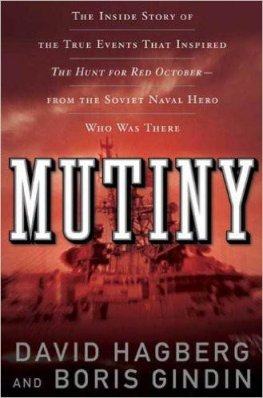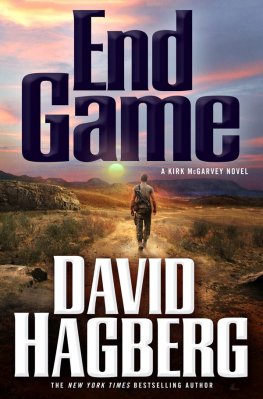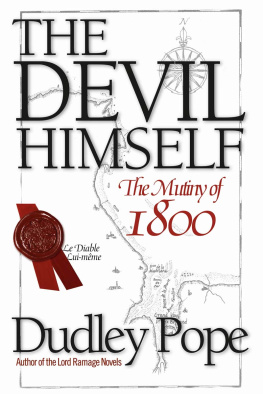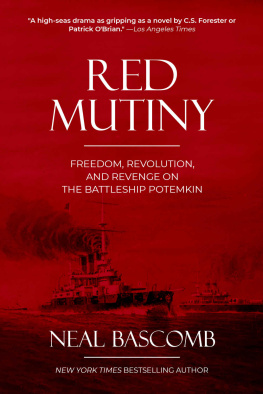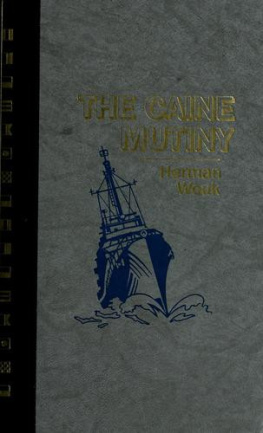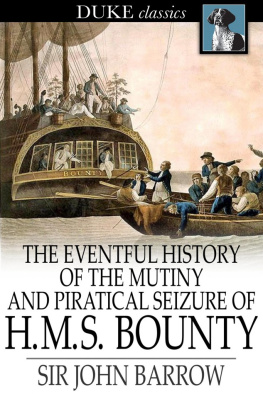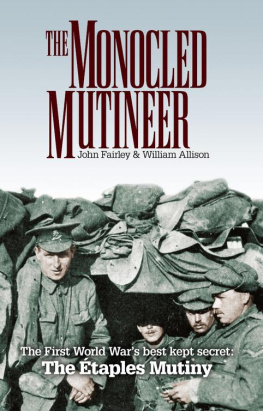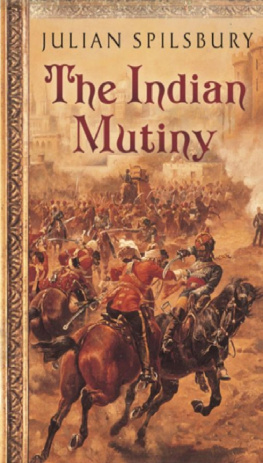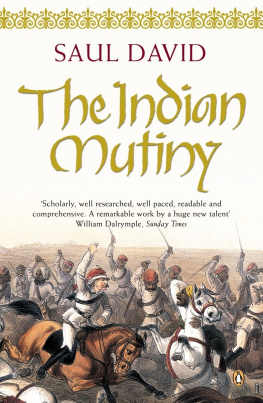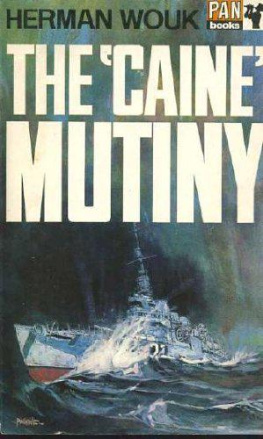David Hagberg and Boris Gindin
MUTINY
THE TRUE EVENTS THAT INSPIRED THE HUNT FOR RED OCTOBER
This book is for my lovely wife, Yana, with special thanks. It was she who inspired me to tell this story.
And for my granddaughter, Alexandra Gindin.
My wish is that this book will always remind her of the immense love I and the rest of the family have for her.
Boris Gindin

I would like to thank Elizabeth Winick, who knew that this was a story that must be told. She had the vision and foresight to take on an improbable project and see it through to completion. Also Tom Doherty, the publisher who took on a Russian immigrant with a story to tell. Without him none of this could have been possible. And to Bob Gleason, a remarkable editor.
Boris Gindin
A special thanks to Larry Bond for his kind help with technical matters. The mistakes are mine.
David Hagberg
Some of the names have been changed.
In the fall of 1975 most of the crewmen of the Soviet antisubmarine warfare ship FFG Storozhevoy mutinied. The captain was seized and confined belowdecks, and those officers and men who did not want to participate were placed under house arrest.
The dangerously idealistic ringleader of the mutiny sent a message to Moscow telling the Brezhnev government that he was taking the ship in order to give a message to the Soviet people, that their government was corrupt and needed to be changed.
The officer thought it would be a wake-up call not only for Russia but for the entire world that the Cold War was spinning dangerously out of control toward global thermonuclear war.
Within hours after the Storozhevoy left the port of Riga, which at the time was part of the USSR, and sailed into the Baltic Sea, Moscow ordered that he be hunted down and killed. The ship, the officers, and the men were all to be destroyed and the entire incident be covered up.
Which very nearly happened, but for the heroic efforts of a few of the officers and crew who saved the lives of everyone.
And the cover-up was complete except for an obscure report of the incident written by a U.S. Navy officer studying at the Naval Postgraduate School in Monterey, California, who managed to piece together the various bits and pieces of the story.
A couple years later Tom Clancy came across the report, which inspired him to write The Hunt for Red October, an edge-of-the-chair thriller that was exciting, entertaining, and highly successful.
Writing a nonfiction account of the mutiny through the eyes of one of the officers was supposed to be a natural extension of a career Ive made chronicling the Cold War in several dozen novels. I have spent three decades studying the Soviet Union, its government, its military organizations, and its secret intelligence services, including the KGB, as well as its people and places.
I had the real-life, up close and personal story of a key player in the drama. Nothing could have been easier. The book would practically write itself. Boris Gindin would tell me the story, and I would fix up his grammar.
But this was, after all, the stuff of real life.
Which meant that if I came across something I didnt like I couldnt change it for the sake of the story. If some of the facts were messy and not pleasant, I couldnt doctor them up to suit the narrative flow.
I might be able to invent some dialogue and interior monologue that, according to Boris Gindin and my own research, was likely to have happened. But I couldnt change the facts.
Rather than relying on poetic license and clever plotting, the story of the Storozhevoy told itself because it is an edge-of-the-chair thriller.
If truth can sometimes be stranger than fiction, then certainly truth can and most often is even more exciting.
Readers have the right to know why, after thirty-two years, I decided to tell this story. It was not an easy decision. I still have a lot of fear of how the new KGB will react. My only hope is that Russia has taken a course toward democracy, in which perestroikaopennessactually means something.
I think that Im doing the right thing, telling the real story behind the mutiny aboard the Storozhevoy in November 1975, because it was one event in a long chain of events that heralded the beginning of the end for the old Soviet regime, of thought police and gulags and the ever-present danger that confrontation with our enemy the United States would result in a global thermonuclear war.
Besides, I owe it to my crewmates to set the record straight.
I was born to a middle-class family who would struggle to make a decent living and educate their children. I grew up with an older sister during the Khrushchev-Brezhnev era, which was marked with pain and frustration for Russians. We thought of that time as the dark ages. People were fed up with lies from their government that a better life was just around the corner. Moscow was spending our money for military weapons, while our grocery stores were almost always empty!
Yet, when I was seventeen, I entered the St. Petersburg Military Engineering Academy because I believed the lie. I wanted to serve and defend my country and build a better future for myself. I wanted my parents to be proud of me. The academy was one of the most prestigious schools in all of Russia, and I wanted to use it to build a career in the navy.
And I did well enough in school, finishing in the top half of my class, so that I was sent to the Baltic Fleet, ending up, by the time I turned twenty-four, serving as an officer on the new Krivak-class warship Storozhevoy.
It was a great honor. But at the time I had no way of knowing that one of my fellow crewmen would mutiny, that Moscow would order us hunted and sunk, that the KGB would shoot the idealistic young officer behind the mutinya man who only wanted a better life for himself and all Russiansthat the careers of many good men would be permanently ruined, and that an American author would make his career writing a novel inspired by the mutiny.
After the incident was over and all of us were under arrest, even those who opposed the mutinyit made no difference to Moscowmy eyes opened to the way things were. And I began to ask myself questions. Why didnt my government recognize the true heroism? Why were the punishments so harsh and unjust? How could the Politburo send the order to sink the Storozhevoy and kill all her crew? How could my government swear me and the others to absolute secrecy on pain of death?
There were to be no disclosures. No discussions to help us get through the pain. No getting it off our chests, not even to relatives, not even to our wives.
Do I regret that I studied at the military academy and wanted to dedicate my life to serving my country and my people? No, I do not.
Do I regret my blind dedication and firmness in following my orders, something that the Soviet government drummed into its peoples heads from the time of birth? Yes, I do.
After the mutiny, the crew of the Storozhevoy signed a KGB document promising never to tell what happened. Everything was buried. For the old Soviet Union, truth had always been the enemy. In some ways I expect that mind-set may still be the case in Moscow.
So why have I written this book? And, maybe more important, should I have told the true story?
I left Russia and Im no longer bound to keep my promise to the secret police. Im an American citizen now.

